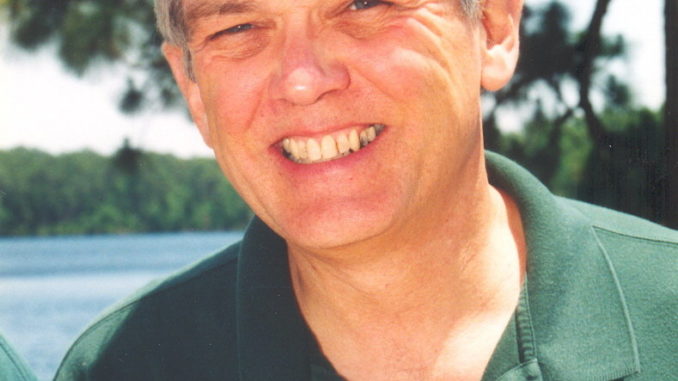
For the second time in less than a year, the N.C. Wildlife Resources Commission will be without an executive director.
Fred Harris, 61, interim executive director since August 2007 following the resignation of Richard B. “Dick” Hamilton, announced April 17 that he would resign May 31 after 36 years of service with the WRC. Harris later rescinded his resignation date but said he would remain as interim deputy director until the WRC hired a permanent director.
Harris indicated he felt partially responsible for a drop in staff morale because he had been unable to adequately perform the duties of two jobs — executive director and deputy executive director – since his appointment following Hamilton’s departure.
Harris said the interim director and deputy director’s jobs are full-time positions and in attempting to do both, he couldn’t perform at a level that met his and the staff’s expectations and those of the commissioners.
The most-likely candidate for the permanent position of executive director, Harris said he’d learned Wes Seegars, the WRC chairman from Goldsboro, had decided to use sportsmen’s dollars ($25,000) to pay for a search to find a permanent executive director. On Monday, April 21, during a telephone interview, Harris said he had gotten incomplete information, and $25,000 would be a top figure to be paid for a search, but no checks had been cut.
Harris also said he had no problem with the Commissioners reaching outside North Carolina to find a permanent executive director.
“I don’t disagree with going (outside North Carolina) to hire a permanent executive director,” Harris said. “If the best person is someone from Alaska, so be it.”
Seegars said he was “surprised and shocked” by Harris’ resignation.
“Arguably, Fred was the leading candidate to be named (permanent) executive director,” he said. “We had been trying to get Gordon Myers redesignated as deputy director. Fred expressed to me in the past that he had a lot to do, but was that elevated to the point of his departure? Absolutely not.
“Everybody’s got way, way ahead of this (situation). No money had been appropriated (to pay for a search to find an executive director).”
Seegars said he had interviewed three agencies by phone and one in person to see how they would handle a search for a new executive director. He said no concrete costs had been decided and said those expenses might range from $8,000 to $15,000, with $25,000 the limit the WRC would pay.
“I wish someone had talked to me before these decisions were made,” Seegars said. “I had talked to Tommy Clark and the search committee. We decided, from a credibility standpoint, we should look outside the agency. So I don’t understand (Harris’ initial criticism of a search for a director outside the agency). Is Fred perfect? Absolutely not, none of us are, but he was the leading candidate. (However), the search committee decided it wanted to look outside the agency and voted unanimously to do that.”
Even after talking to Seegars, Harris reiterated he believed the WRC probably should promote an executive director from within its ranks because hires of directors from outside had not worked well at other states. Harris said the WRC had a dedicated and talented staff and recommended filling of positions of leadership from within the agency.
Harris also noted “micro-managing” of staff assignments below the level of the director by commissioners, which he said caused a drop in morale.
By way of explanation, Harris said the WRC had been studying long-term strategic plans for future operations of the agency, including addressing problems such as hunter recruitment. Harris pointed out he believed the commissioners should handle strategic planning but allow the staff to decide how to accomplish those plans. Then the staff would present its ideas to the commissioners, who would make final decisions, which is a methodology the WRC has used in the past.
Seegars indicated he wanted more collaboration with the staff and said he felt it was appropriate for commissioners to formulate “action plans.” The chairman then would meet with the executive director to decide how division chiefs would implement those plans, then the chairman and executive director would take the plans to the full commission.
Harris began his career with the WRC in 1972 as a fisheries biologist, became fisheries research coordinator for the piedmont in 1975, and assistant fisheries chief in 1981. He later became chief of the Division of Inland Fisheries, then was named deputy director in 2004 and interim executive director in 2007.




Be the first to comment